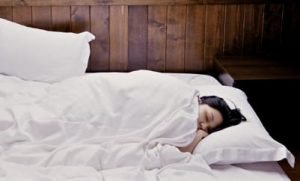
Sleep
Sleep
We all enjoy a good night’s rest, but are you aware of the numerous health and performance benefits associated with a quality sleep. Let us explore
Why is it important to have a good quality sleep?
- Memory and learning: While you’re sleeping, your brain consolidates information, which is essential for learning and also storing long-term memories. Having sufficient sleep helps us to focus our attention and improve recall of information.
- Productivity: Quality sleep has been shown to aid decision-making and problem solving, thus boosting your productivity!
- Emotional well-being: Having a sleep debt has been linked to depression, suicide, and risk-taking behaviour.
- Physical health: Sleep is important for growth, development, healing and repair of your body.
Can a lack of sleep affect sports performance?
Yes! Research has shown sleep-deprived athletes:
- Have decreased muscular strength and endurance
- Are not as powerful
- Fatigue faster
- Are less precise and accurate
In most sports, an element of muscular strength, endurance, power, flexibility, and reaction times are required for peak performance. Hence if you are trying to optimise your performance, getting sufficient sleep is critical. Did you know some professional sporting clubs have beds for their players to rest in?
Does a lack of sleep affect pain?
Yes! Over 50% of insomnia sufferers complain of chronic pain.
People with insufficient sleep have:
- Increased sensitivity to pain. Healthy individuals who had 4 hours of sleep per night for 12 days reported an increase in generalised body, back and stomach pain. They were also less optimistic and had decreased cognitive function.
- A higher likelihood of developing chronic pain. Specifically, a study reported that women who often had difficulty falling asleep or had a sleep disorder were significantly more likely to develop fibromyalgia (a chronic pain condition) 10 years later.
If you suffer from sleep deprivation, these results may seem depressing. However, all hope is not lost! A study showed that early intervention to improve sleep duration and quality in could prevent long term deficits in pain regulatory function.
How do I get a better sleep?
- Develop a consistent sleep routine (ie. go to bed at the same time and wake up at the same time daily).
- Ensure your bedroom is kept cool, dark and quiet. Eye masks and earplugs can be useful, especially when you are travelling.
- Avoid watching or using technological devices (ie. television, computers, laptops, mobile phones) 1 hour before you plan to sleep.
- Avoid caffeine approximately 5 hours before sleep.
- Avoid consuming large amounts of fluids before sleeping as waking up in the middle of the night will disturb your sleep.
- Consider your pillow and sleep position.
- Perform daily physical activity or exercise.
How much sleep should I be getting?
The Australian sleep guidelines suggest:
- Newborns should be getting 14-17 hours sleep a day.
- Infants should sleep 12-15 hours, toddlers 11-14 hours and preschoolers 10-13 hours.
- School children need 9-11 hours and teenagers 8-10;
- Adults aged 18 to 64 need 7-9 hours; and
- People over 65 are advised to have just 7-8 hours a day. But they should expect to wake regularly during the night.
If you have any questions regarding any of this information, feel free to consult Duncraig Physio clinic. We will be more than happy to help you.
References:
- Rasch B, Born J. About Sleep’s Role in Memory. Physiological Reviews. 2013; 93(2): 681-766.
- Walker MP, Stickgold R. Sleep, memory, and plasticity. Annual Review Psychology. 2006; 57: 139-166.
- Womack SD, Hook JN, Reyna SH, Ramos M. Sleep Loss and Risk-Taking Behavior: A Review of the Literature. Behav Sleep Med. 2013; 11(5):343-59.
- “Sleep Deprivation And Deficiency”. National Heart, Lung, and Blood Institute NIH (US). (Website).
- Fullagar HH, Skorski S, Duffield R, Hammes D, Coutts AJ, Meyer T. Sleep and athletic performance: the effects of sleep loss on exercise performance, and physiological and cognitive responses to exercise. Sports Med. 2015; 45(2):161-86.
- Taylor DJ, Mallory LJ, Lichstein KL, Durrence HH, Riedel BW, Bush AJ. Comorbidity of chronic insomnia with medical problems. Sleep. 2007; 30(2): 213-8.
- Roehrs TA, Harris E, Randall S, Roth T. Pain sensitivity and recovery from mild chronic sleep loss. Sleep. 2012; 35 (12):1667-1672.
- Finan PH, Goodin BR, Smith MT. The association of sleep and pain: an update and a path forward. J Pain. 2013; 14 (12):1539-52
- Haack M, Mullington JM. Sustained sleep restriction reduces emotional and physical well-being. Pain. 2005; 119:56-64.
- Mork PJ, Nilsen TI. Sleep problems and risk of fibromyalgia: Longitudinal data on an adult female population in Norway. Arthritis Rheum. 2012; 64:281-4.
- Australian Sleep Guidelines. http://www.apna.asn.au/scripts/cgiip.exe/WService=APNA/ccms.r?Pageid=6009&DispMode=goto%7C12648